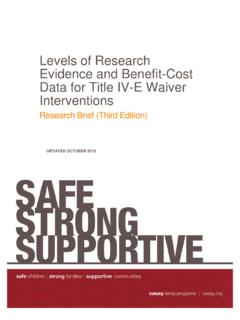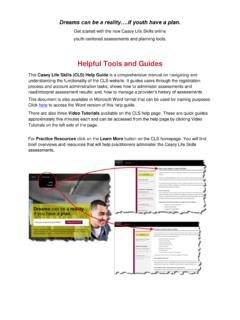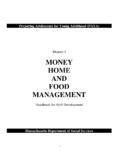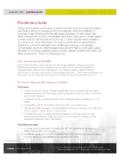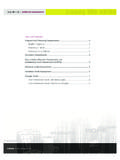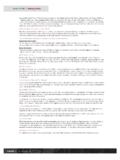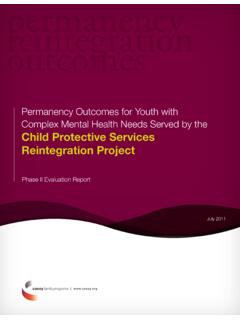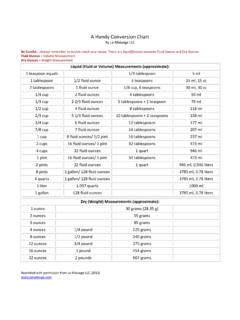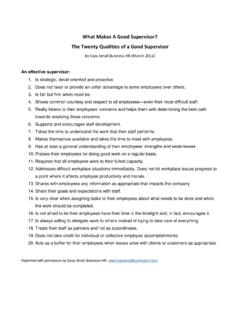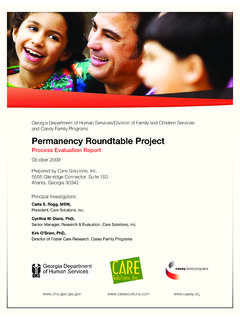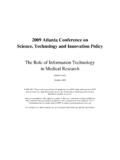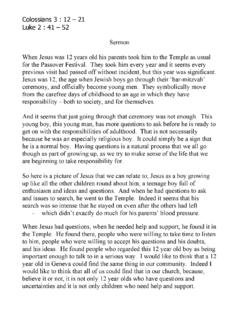Transcription of How to Search the Internet Effectively - Casey …
1 How to Search the Internet Effectively By WebTools Company Search Engines Internet Search sites can Search enormous databases of Web pages, using titles, keywords or text. You can maximize the potential of Search engines by learning how they work, and how to use them quickly and Effectively . The challenge is to ask your question the right way, so that you don't end up overwhelmed with too many Search results, underwhelmed with too few, or simply unable to locate the material that you need. As with most skills, practice makes perfect! Getting Started Before doing a Search , it's important to define your topic as completely and succinctly as possible. Write down exactly what information you're looking for, why you're looking for it, and what you're not looking for. This will help you to discover the best keywords for your Search . Keywords With the exception of Search engines such as , which will take questions in the form of actual queries, most work best if you provide them with several keywords.
2 So how do you determine which keywords will work best? Most users submit keywords per Search , which is not enough for an effective query - the recommended maximum is 6 to 8 carefully chosen words, preferably nouns and objects. ( Search engines consider articles and pronouns clutter.) Avoid verbs, and use modifiers only when they help to define your object more precisely - as in "feta cheese" rather than just "cheese." Now you have your keywords. How do you enter them into the Search engine? Use of Phrases Your most powerful keyword combination is the phrase. Phrases are combinations of two or more words that must be found in the documents you're searching for in the EXACT order shown. You enter a phrase - such as "feta cheese" - into a Search engine, within quotation marks. Some searches provide specific options for phrases, while others don't allow them at all; but most will allow you to enter a phrase in quotation marks.
3 Check the "Help" files of the Search engine you're using to be sure what it accepts. Punctuation and Capitalization Most Search engines are insensitive to case: you can type your queries in uppercase, lowercase, or a mix of cases. If you use lowercase, most engines will match on both upper and lower case; so for general searches, lowercase is the safest form to use. Not all Search engines handle punctuation the same way. When in doubt, consult the "Help" file. Boolean Basics "Boolean" searching (named after George Boole, the 19th-century mathematician who founded the field of symbolic logic) is a powerful technique that can narrow your Search to a reasonable number of results, and increase the chance of those results being useful. Boolean searches are simple to learn and tremendously effective. The three most commonly used Boolean commands (or "operators") are AND, OR and AND NOT.
4 AND means "I want only documents that contain both/all words." For instance, the Search "London" AND "Big Ben" AND "Buckingham Palace" AND "Trafalgar Square" would return only documents that contained all four keywords or phrases. AND is the most frequently used Boolean command. OR means "I want documents that contain either word; I don't care which." The query "London" OR "Big Ben" OR "Buckingham Palace" OR "Trafalgar Square" would return all documents that contained even one of these four keywords or phrases. Use OR to string together synonyms; be careful about mixing it with AND. AND NOT means "I want documents that contain this word, but not if the document also contains another word." The query "London" AND "Big Ben" AND NOT "Buckingham Palace" would return documents that include London and Big Ben, but not those that also include Buckingham Palace.
5 Remember that AND NOT only applies to the word or phrase that immediately follows it. Most Search engines support the AND NOT command. It is sometimes called BUT NOT or NOT, and is sometimes indicated by placing a minus sign (-) before the term or phrase to be removed. (Check the Search tips of the engine you're using to see which form of AND NOT it accepts). Before you apply AND NOT, see what results you get from a simpler Search . AND NOT is a great way to weed out results you don't want, such as pornography. Quick Tips Use nouns as query keywords. Never use articles ("a," "the"), pronouns ("he," "it"), conjunctions ("and," "or") or prepositions ("to," "from") in your queries Use 6 to 8 keywords per query Where possible, combine keywords into phrases by using quotation marks, as in "solar system" Spell carefully, and consider alternate spellings Avoid redundant terms Check the "Help" function of the particular Search engine you're using, since they all have their own quirks and preferences A successful Internet Search can take several tries.
6 But remember: it's estimated that there are between 200 and 800 million documents online - with no master system for organizing this information! No wonder effective searches take knowhow, patience and ingenuity. To find out about more about Search engines, check out Search Engine Watch. This site has the latest information about the best Search engines available, searching tips, and much more. Source: Search Tutorial: Guide to Effective Searching of the Internet by the WebTools Company. Republished with permission. The information in this document has been extracted from the complete version of Search Tutorial: Guide to Effective Searching of the Internet , which was researched, written and maintained by The WebTools Company, of VisualMetrics Corporation. 2010 Media Awareness Network
